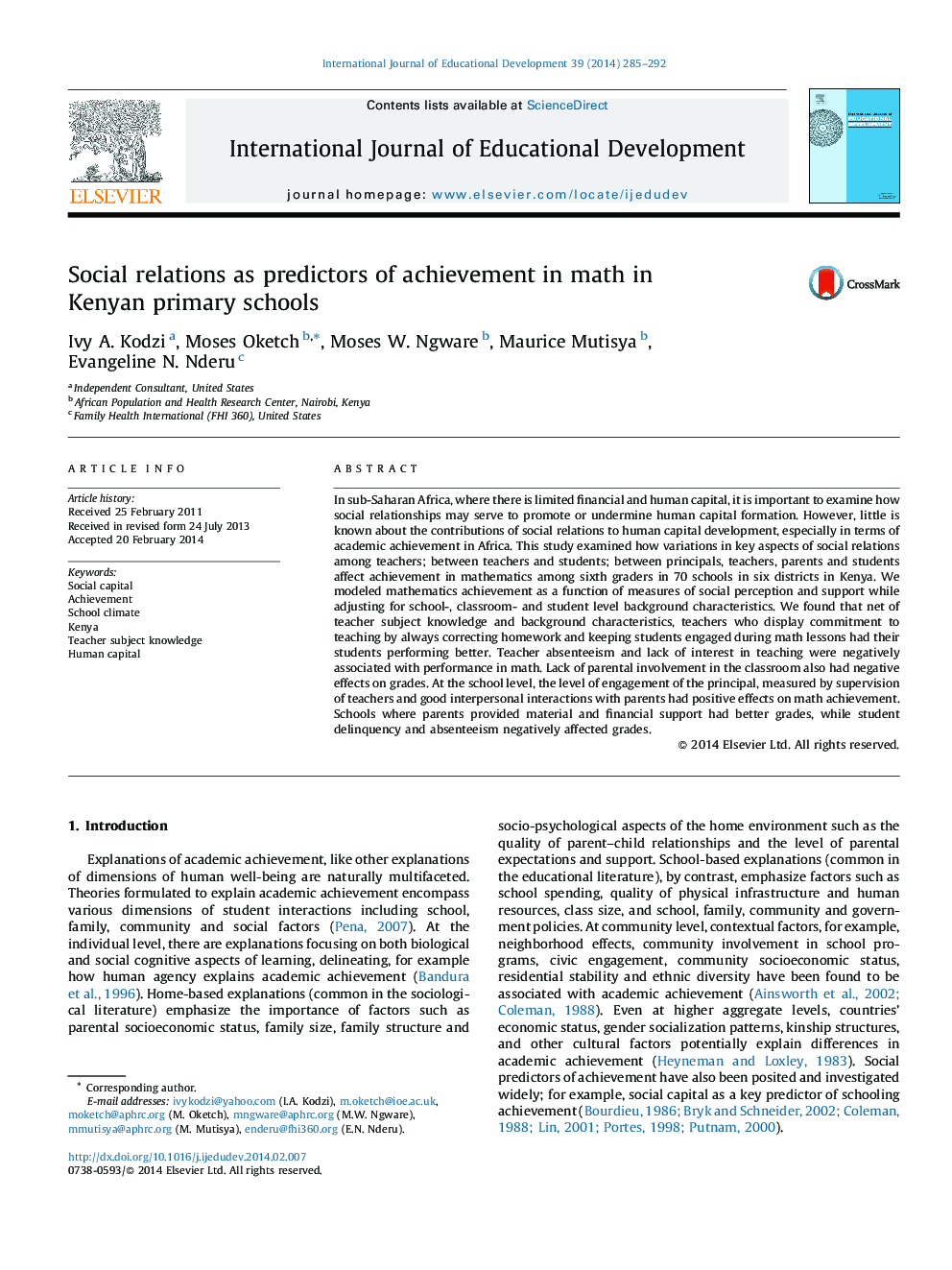| Article ID | Journal | Published Year | Pages | File Type |
|---|---|---|---|---|
| 6841421 | International Journal of Educational Development | 2014 | 8 Pages |
Abstract
In sub-Saharan Africa, where there is limited financial and human capital, it is important to examine how social relationships may serve to promote or undermine human capital formation. However, little is known about the contributions of social relations to human capital development, especially in terms of academic achievement in Africa. This study examined how variations in key aspects of social relations among teachers; between teachers and students; between principals, teachers, parents and students affect achievement in mathematics among sixth graders in 70 schools in six districts in Kenya. We modeled mathematics achievement as a function of measures of social perception and support while adjusting for school-, classroom- and student level background characteristics. We found that net of teacher subject knowledge and background characteristics, teachers who display commitment to teaching by always correcting homework and keeping students engaged during math lessons had their students performing better. Teacher absenteeism and lack of interest in teaching were negatively associated with performance in math. Lack of parental involvement in the classroom also had negative effects on grades. At the school level, the level of engagement of the principal, measured by supervision of teachers and good interpersonal interactions with parents had positive effects on math achievement. Schools where parents provided material and financial support had better grades, while student delinquency and absenteeism negatively affected grades.
Related Topics
Social Sciences and Humanities
Social Sciences
Development
Authors
Ivy A. Kodzi, Moses Oketch, Moses W. Ngware, Maurice Mutisya, Evangeline N. Nderu,
